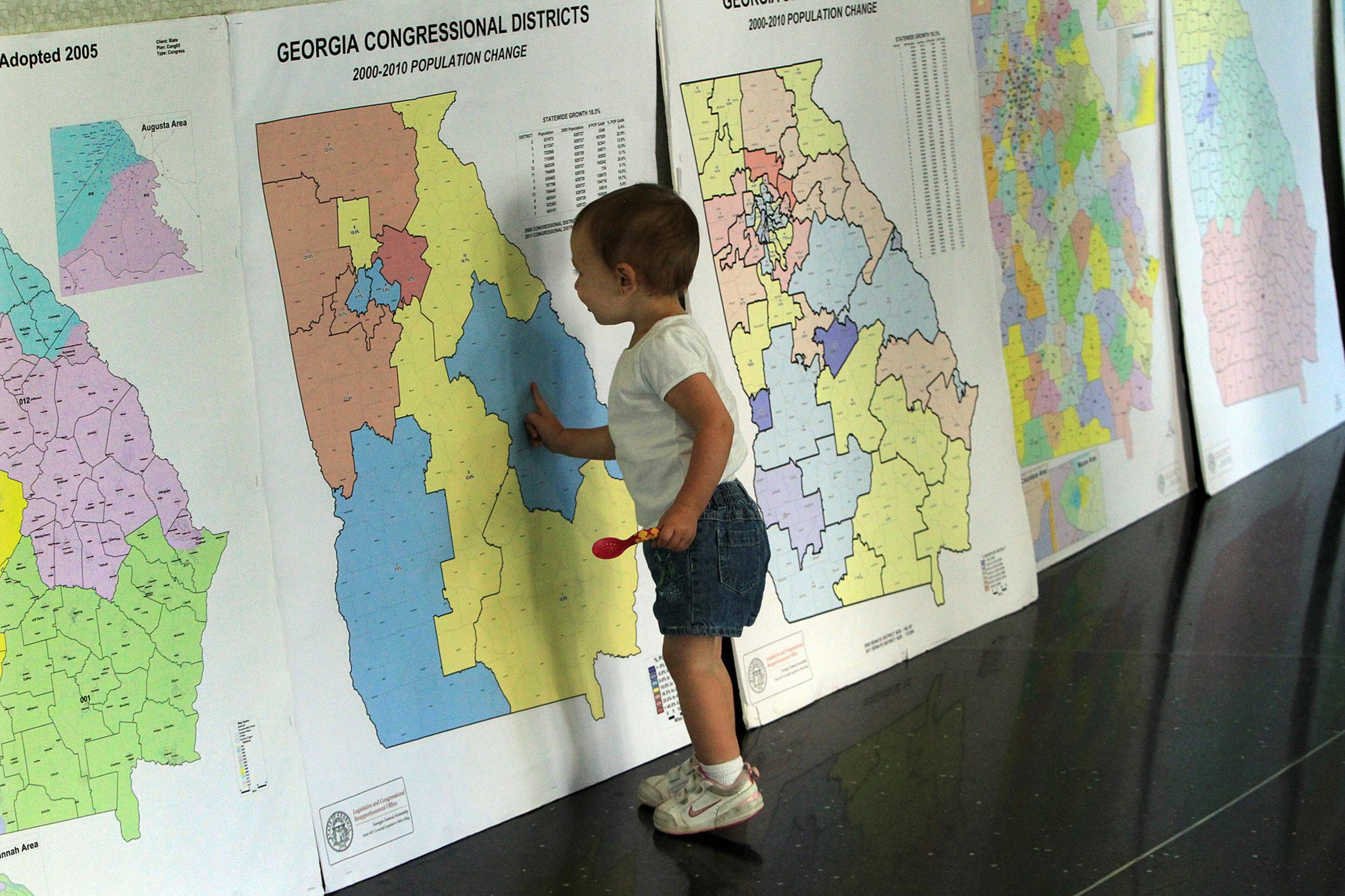Torpy at Large: Democracy divided should not stand

The electoral insanity that was the 6th Congressional District race this year was a wild aberration in Georgia, a man-bites-dog story, if you will.
No, it wasn’t that the candidates spent more than some countries spend on defense budgets. It was that a congressional race in Georgia ended up this close. Republican warhorse Karen Handel beat Democratic boy wonder Jon Ossoff by 4 points. Any closer, that’s a photo finish.

Last weekend, The Atlanta Journal-Constitution ran a story I see as a sign post to democratic (both small and big ‘D’) oblivion.
On its face, the story was one of excess, outlining how U.S. congressional representatives from Georgia enjoy the perks of office while getting themselves re-elected. But it spoke of something more dire.
Reporter Tamar Hallerman dug through campaign spending reports to show how the state's 14 congressmen (no women in the 2016 election cycle) spent an average of $1 million while coasting to victory.
The campaigns spent money on luxury fishing trips on the Chesapeake Bay, a birthday blowout at the Tabernacle in Atlanta, tickets to the Masters, a hotel in the Virgin Islands, and even at a seafood joint with $26 crab cakes.
But outlandish spending wasn’t the worst. It was that none of these representatives had even an inkling of a competitive race. Democracy was a victim of hyper-partisan redistricting.
Rep. Rob Woodall squeaked out a 20 percent win in his northeast metro Atlanta district over Rashid Malik, a Democrat taking one for his team. The other eight incumbents with opponents in November won 2-1. And five others faced nobody at all.
Of the victors, the 10 Republicans were white men, while the four Democrats were black men, as Georgia’s GOP-majority Legislature is great at packing black voters into a few congressional districts and spreading out their own voters.
Handel then added some (gender) diversity after Georgia’s U.S. Rep. Tom Price left to become President Donald Trump’s secretary of Health and Human Services.
Georgia’s members of Congress spend all that campaign loot to ward off challengers, especially those from their own parties coming after them in primaries. It’s them making an aggressive statement, like gorillas beating their chests.
The current setup is bad for democracy, since neither Republicans nor Democrats worry much about anyone other than their base to win. Political compromise, or even rational discourse, is an endangered species.
The Cook Political Report recently noted that in 1997, there were 164 congressional "swing" districts. Today there are 72. That means the district has voted within 5 percentage points (Democratic or Republican) of the national average in the past two presidential elections.
The Georgia Legislature is just as bad about carving up their own districts, if not worse.
After the election in November 2014, I wrote: "Democracy is largely kaput, a pleasant theory, but one no longer in practice."
Of the 236 seats in the Georgia Legislature (180 in the House, 56 in the Senate), just 47 had “active” races, meaning an R faced off against a D. In those, the winner averaged 67 percent of the vote.

Comparatively, the state was more evenly divided. The governor and U.S. Senate races both went 52-45 percent Republican that fall. But wily Republican legislators carved up the districts so that the state House and Senate were both about 2-1 GOP.
Back then, I noted that state Rep. Joyce Chandler, a Republican of state House District 105 in Gwinnett County, had the closet of the 236 races, winning 52.8 percent of the vote.
The district was new in 2012 when the retired educator first ran and it was roughly 50-50 D and R, meaning she had to reach out to voters of the other party — an anomaly in Georgia. The district was becoming increasingly “diverse,” she told me, adding, “I can’t win by just winning white voters.”

Not to worry. Her Republican compadres were hard at work the next spring in some spot-redistricting, shaving off some black voters from her district, as well as some of the Latino variety. It came in the nick of time for the 2016 race, when she again had the state's closest finish, winning 50.4 percent over Democrat Donna McLeod.
Chandler said she never asked for any special redistricting help.
Last fall, just 45 of the 236 districts had contested races, with the winning percentage dropping to 65 percent. The Rs still hold roughly two-to-one advantages in both chambers.
A couple of months ago, I read a story in the Washington Post about Georgia’s 6th Congressional District that quoted former Republican state Sen. Don Balfour talking about the “toxic” political system.
“Most congressional districts are heavy ‘R’ or heavy ‘D.’ So people stay real far right or real far left, or else they might get a primary,” he said. “States aren’t going to change unless the Supreme Court makes them.”

Balfour was referring to two redistricting cases heading to the U.S. Supreme Court, both challenging GOP redistricting in Wisconsin and North Carolina.
The attorney on the North Carolina case is Emmet Bondurant, an Atlanta attorney who has fought many election law cases, starting with a 1963 lawsuit against rural Democrats. Both the rural Dems of old and the Republicans of today are good at carving their own fiefdoms.
He noted that in 2010, North Carolina had seven Democrats and six Republicans who were members of Congress. Today it’s 10-3 Republican, even though Trump won the state by less than 4 percentage points.
He said political scientist Jowei Chen, a witness for his case, has created a computer algorithm that cuts political districts. Chen enters in all the components pols say they want when creating districts: compact districts, contiguous communities of interest, counties that are not subdivided. One thing the professor does not enter into the equation — “partisan advantage,” meaning he’s drawing them straight.
“If he runs a thousand maps, the odds of a 10-3 (Republican congressional advantage in North Carolina) is a statistical zero,” Bondurant said. “If he does it again, the odds of a 9-4 advantage are again zero. That tells us one thing. Something is rotten.”
That’s the smell of our decaying democracy.


